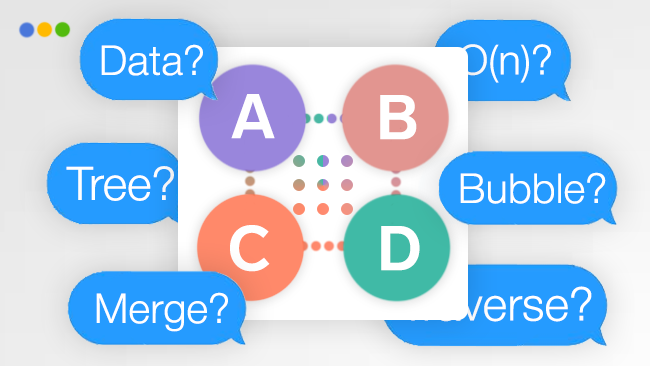Introduction
In today’s competitive job market, proactive career management is essential for professional advancement. One key strategy that has gained prominence is the informational interview—a valuable tool for networking and gathering insights into specific industries, roles, and organizational cultures. This process not only allows individuals to expand their professional connections but also provides a platform for nuanced understanding of career trajectories and opportunities. However, the effectiveness of an informational interview largely hinges on meticulous preparation. In this article, we delineate the essential steps necessary for effectively preparing for informational interviews, equipping professionals with the knowledge and strategies to maximize their outcomes. By focusing on targeted research, question formulation, and follow-up practices, we aim to empower individuals to engage meaningfully and productively in these pivotal conversations.
Table of Contents
- Understanding the Purpose and Value of Informational Interviews
- Identifying and Researching Potential Contacts
- Crafting a Structured and Relevant Question Set
- Following Up and Leveraging Insights Gained
- The Way Forward
Understanding the Purpose and Value of Informational Interviews
Informational interviews serve as a crucial tool for individuals seeking to navigate their career paths more effectively. These conversations provide an opportunity to gain insightful knowledge about a specific industry, company, or role, directly from someone with firsthand experience. By engaging in these discussions, you not only expand your professional network but also obtain valuable perspectives that can guide your career decisions. The value of these interviews lies in their ability to facilitate authentic dialogues, enabling you to ask questions that matter while cultivating relationships that could benefit your career trajectory.
Furthermore, informational interviews can significantly enhance your job search strategy. They allow you to uncover hidden job markets and learn about opportunities that may not be widely advertised. Through these interactions, you can gather information on essential skills and qualifications that employers prioritize, providing you with a competitive edge. To maximize the benefit of your informational interviews, focus on the following aspects:
- Research the interviewee: Understand their background and role.
- Prepare thoughtful questions: Tailor questions to extract actionable insights.
- Follow up: Send a thank-you note post-interview.
Identifying and Researching Potential Contacts
In the process of preparing for informational interviews, identifying the right contacts is crucial. Start by leveraging various professional networks such as LinkedIn, industry-specific forums, and alumni associations. Look for individuals who hold positions you aspire to or work in companies that interest you. It’s essential to create a targeted list of potential contacts, focusing on individuals who have relevant experience or insights to share. A mapping strategy can be beneficial; consider categorizing your contacts based on their expertise, geographic location, or professional background.
Once you have compiled a list of potential contacts, invest time in comprehensive research to understand their career trajectories and current roles. A few key areas to focus on include:
- Industry Trends: Familiarize yourself with the latest developments in their field.
- Professional Achievements: Review their major accomplishments, projects, or publications.
- Networking Habits: Note their engagement in events or groups that may give you common ground.
For a more organized approach, consider presenting your findings in a structured format, as demonstrated in the table below:
| Contact Name | Current Role | Company | LinkedIn Profile |
|---|---|---|---|
| Jane Doe | Senior Marketing Manager | XYZ Corp | View Profile |
| John Smith | Product Development Lead | ABC Inc | View Profile |
Crafting a Structured and Relevant Question Set
To gain the most from your informational interviews, it is essential to prepare a well-structured set of questions that are tailored to the individual you are meeting. Consider categorizing your questions into three key areas: career trajectory, industry insights, and skill development. This approach not only keeps the conversation organized but also shows respect for the interviewee’s time. You might ask about their personal career path, what challenges they faced in the industry, or competencies that are critical for future professionals. A few sample questions in these categories could include:
- Career Trajectory: What inspired you to pursue a career in this field?
- Industry Insights: What trends do you foresee shaping this industry in the next few years?
- Skill Development: Could you recommend key skills I should focus on developing for success in this role?
Additionally, it can be beneficial to include open-ended questions and prompts that encourage dialogue. This type of questioning can lead to richer discussions and deeper insights. To help visualize your question structure, consider the table below:
| Category | Sample Question |
|---|---|
| Career Trajectory | What pivotal moments in your career shaped your professional journey? |
| Industry Insights | What do you believe are the biggest challenges currently facing our industry? |
| Skill Development | Which resources do you recommend for continued education in this field? |
Following Up and Leveraging Insights Gained
After completing your informational interviews, the next crucial step is to follow up with your contacts. This not only demonstrates professionalism but also helps to solidify the relationship you’ve built during the conversation. Craft a personalized thank-you note that expresses gratitude for their time and insights, and try to include a specific detail from your discussion to show your attentiveness. This can foster goodwill and encourage open lines of communication for any future exchanges.
Furthermore, leverage the insights gained from these interviews to refine your career strategy. Consider organizing the information into actionable items or themes, which can guide your next steps. Here are some ways you can make use of the knowledge shared with you:
- Identify Skills: Recognize the key skills and qualifications that industry experts emphasize.
- Network Expansion: Ask if they can refer you to other professionals who might provide more insights or opportunities.
- Career Paths: Analyze the different paths shared and assess where you might fit in.
| Insight Type | Actionable Step |
|---|---|
| Skill Requirements | Enroll in relevant courses or training |
| Networking Opportunities | Connect with referred contacts on LinkedIn |
| Industry Trends | Stay updated through journals or webinars |
The Way Forward
the preparation for an informational interview is a crucial step in optimizing your career advancement opportunities. By meticulously researching the industry and the individual you will be meeting, formulating insightful questions, and establishing clear objectives for the discussion, you lay a strong foundation for a productive exchange. Remember to approach the interview with professional courtesy and a genuine eagerness to learn, as these qualities enhance rapport and foster meaningful connections.
Moreover, follow-up after the interview with a concise thank-you note, reflecting on key discussion points and expressing appreciation for their time and insights. By implementing these essential steps, you not only enhance your understanding of the field but also position yourself as a proactive candidate in the eyes of industry professionals. Preparing thoroughly for informational interviews is not merely about gathering information; it is an investment in building a robust professional network that can facilitate career growth and opportunities in the long run.





